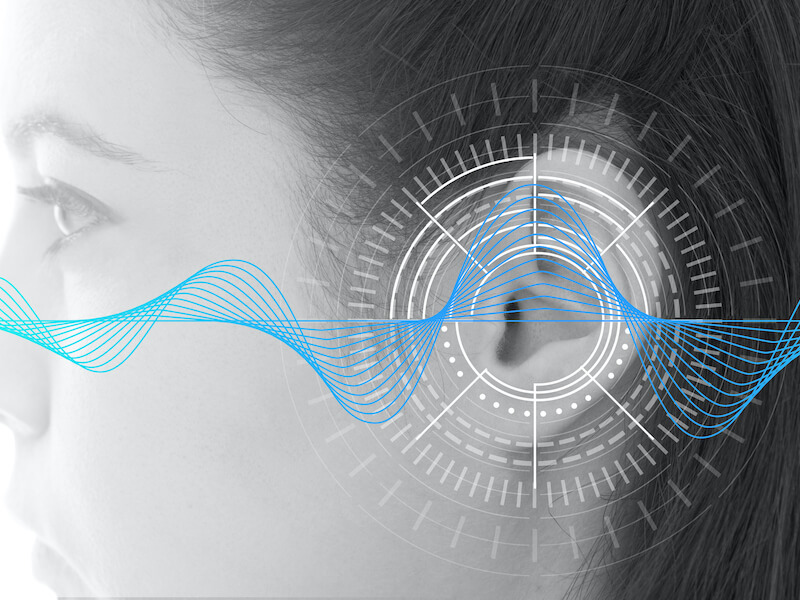
Self-diagnosing hearing loss is basically impossible. For example, you can’t really put your ear up to a speaker and subjectively evaluate what you hear. Which means that if you want to know what’s going on with your hearing, you have to get it tested.
But there’s no need to be concerned or stress out because a hearing test is about as simple as putting on a high-tech pair of headphones.
But we get it, no one likes tests. Tests in general are no fun for anyone of any age. You will be more relaxed and more ready if you take a little time to get to know these tests. There’s virtually no test easier to take than a hearing test!
What is a hearing test like?
Talking about scheduling an appointment to get a hearing assessment is something that isn’t that unusual. And the phrase “hearing test” is something we’ve probably talked about on occasion. You might even be thinking, well, what are the two types of hearing tests?
Well, that’s a bit misleading. Because as it happens, there are a number of different hearing tests you may undergo. Each of these tests will give you a particular result and is designed to measure something different. Here are a few of the hearing tests you’re likely to encounter:
- Pure-tone audiometry: Most individuals are probably familiar with this hearing test. You wear some headphones and you listen for a tone. Hear a tone in your right ear? Raise your right hand. Hear the pitch in your left ear? Same thing! This will test how well you hear a variety of frequencies at a variety of volumes. It will also measure whether you have more significant hearing loss in one ear than the other.
- Speech audiometry: Sometimes, you can hear tones really well, but hearing speech is still something of a challenge. Speech is typically a more complex audio spectrum so it can be harder to hear clearly. This test also consists of a set of headphones in a quiet room. You will listen to speech at different volumes to determine the lowest volume you can hear words and clearly comprehend them.
- Speech and Noise-in-Words Tests: Needless to say, conversations in real-time take place in settings where other sounds are present. The only actual difference between this test and the Speech audiometry test is that it is performed in a noisy setting. This mimics real-world situations to help determine how your hearing is working in those situations.
- Bone conduction testing: This diagnostic is created to measure the performance of your inner ear. Two small sensors are placed, one on your forehead, and one on your cochlea. Sound is then sent through a small device. This test assesses how well those sound vibrations move through your inner ear. If this test determines that sound is moving through your ear effectively it could indicate that you have a blockage.
- Tympanometry: The overall health of your eardrum sometimes requires testing. Tympanometry is a test that is used for this purpose. Air will be gently blown into your ear so that we can measure how much movement your eardrum has. If you have fluid behind your eardrum, or a hole in your eardrum, this is the test that will detect that.
- Acoustic Reflex Measures: During this test, a tiny device supplies sound to your ear and measures the muscle feedback of your inner ear. The reflexive reaction of the muscle movement of your inner ear will help us discover how well it’s working.
- Auditory Brainstem Response (ABR): The ability of your inner ear and brain to respond to sound is measured by an ABR test. This is achieved by placing a couple of strategically placed electrodes on the outside of your skull. Don’t worry, though! This test is entirely painless. It’s one of the reasons why ABR testing is used on people from grandparents to newborns!
- Otoacoustic Emissions (OAE) Testing: This diagnostic is made to determine how well your cochlea and inner ear are functioning. It does this by measuring the sound waves that echo back from your inner ear into your middle ear. If your cochlea isn’t working properly or there’s an obstruction, this test will detect it.
What can we learn from hearing test results?
You probably won’t have to get all of these hearing tests. Generally, your particular symptoms will determine which of these tests will be appropriate.
When we test your hearing, what are we looking for? A hearing test can sometimes reveal the cause of your hearing loss. In other circumstances, the test you take may just eliminate other possible causes. Whatever hearing loss symptoms you’re experiencing will ultimately be determined.
In general, your hearing test will uncover:
- How much your hearing loss has advanced and how significant it is.
- Which wavelengths of sound you have the hardest time hearing (some people have a difficult time hearing high frequencies; others have a hard time hearing low pitches).
- Whether you are dealing with hearing loss or experiencing the symptoms associated with hearing loss.
- The best strategy for dealing with your hearing loss: Once we’ve determined the cause of your hearing loss, we’ll be able to more successfully provide treatment solutions.
Is there any difference between a hearing screening and a hearing test? The difference between a quiz and a test is an apt comparison. A screening is really superficial. A test is a lot more in-depth and can supply usable information.
The sooner you take this test, the better
So as soon as you notice symptoms, you need to schedule a hearing test. Don’t worry, this test isn’t going to be super stressful, and you won’t have to study. And the tests aren’t painful or invasive. If you’re wondering, what should I not do before a hearing test, don’t worry, we will provide you with all of that information.
It’s easy, just call and schedule an appointment.
